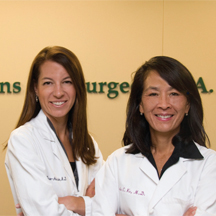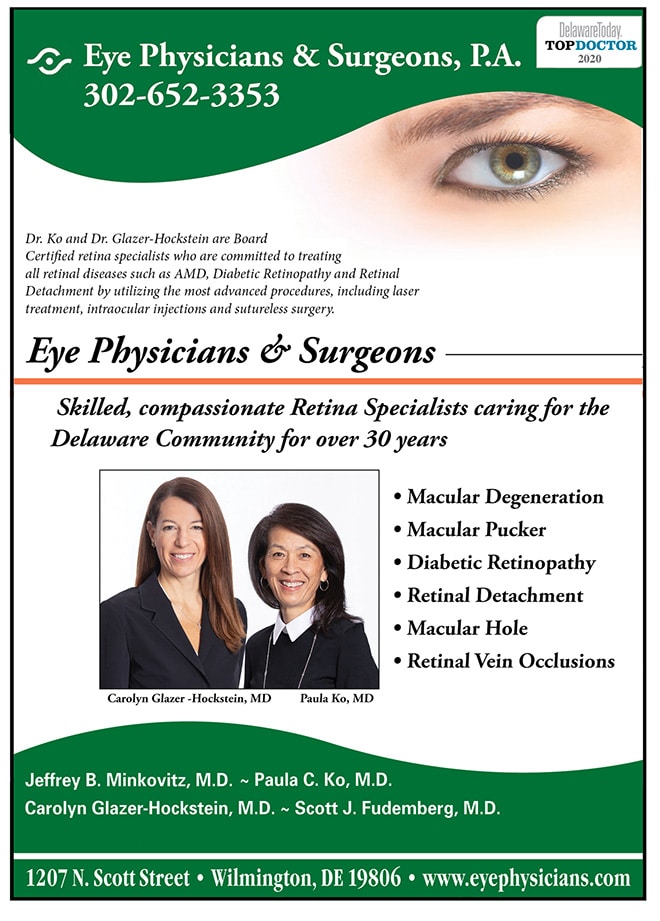A New Cure For Blindness – Gene Therapy For Retinal Disease
By Dr. Carolyn Glazer-Hockstein
Many people suffer from loss of vision, but there are different degrees of visual disability or blindness. Visual impairment affects a person’s ability to perform activities of daily living such as reading, driving, cooking and recreational activities. The legal definition of blindness is central visual acuity of 20/200 or less in the better eye. Retinal degenerative diseases are a type of eye disease that can cause severe visual impairment. When the photoreceptors in the back of the eye malfunction and disappear, blindness can ensue. The retina is composed of photoreceptor nerve cells that sense light and signal our brain to create an image (similar to the way film in a camera captures a picture). When the photoreceptor cells do not work or die, a person loses the ability to see an image. Retinal degenerative diseases are often progressive and can lead to complete blindness.
The FDA has recently approved Luxturna, the first gene therapy treatment for a retinal degenerative disorder. Luxturna repairs a defective gene, RPE65, which causes the rare genetic childhood blinding disease Leber’s Congenital Amaurosis. There are approximately 1,000-2,000 patients in the U.S. with RPE65 mutations. Created by Drs. Jean Bennett and Albert Maguire at the University of Pennsylvania, Luxturna has taken more than 25 years to develop, but is now finally available to restore eyesight in patients who suffer from this rare, severe blinding disease that previously had no treatment.
Drs. Bennett and Maguire are a married couple – research team that began their study of genetic eye disease early in their medical careers. Dr. Bennett created the genetically engineered virus that carries the corrected version of the gene to the retina. Dr. Maguire performed the surgery to inject the viral vector beneath the retina. They started their work in a laboratory, but eventually treated a dog named Lancelot who was one of the first animals to have his vision saved from the procedure. After treatment Lancelot was able to navigate through a dimly lit obstacle course whereas before he would bump into objects. The first clinical trials in humans began in 2007. Treated patients have had visual improvement within weeks of the surgery. The functional difference for treated patients is truly amazing. Patients have gone from being totally blind to being able to walk around a room. One treated child relied on Braille to read and write and after treatment was able to attend a regular school. Another 6 year old patient, shortly after intervention, went trick-or treating for the first time. Patients could now see light, stars, the moon, and faces of loved ones.
While Leber’s Congenital Amaurosis is a rare condition, gene therapy may lead to a paradigm shift for patients with genetic eye diseases. As more of diseases’ genetic codes are identified, the viral vector gene delivery system created by Drs. Bennett and Maguire may be applied to other eye diseases including retinitis pigmentosa and macular degeneration. People who face the incredible life challenges associated with profound visual impairment have a new hope. There is a potential treatment available that previously seemed unattainable. I look forward to the day when I can tell my patients with severe retinal degenerative disorders that yes, there is a cure.
Dr. Glazer-Hockstein graduated Cum Laude from Jefferson Medical College. She was a member of the Hobart Armory Hare Honor Medical Society and was elected to the Alpha Omega Alpha Honor Society. She also received the Carol R. Mullen prize in ophthalmology. She completed her residency at the Scheie Eye Institute, University of Pennsylvania. During that time she was elected Chief Resident. After residency, Dr. Glazer-Hockstein completed a two years medical retina fellowship at the Scheie Eye Institute, University of Pennsylvania.
Dr. Glazer-Hockstein has published multiple articles in peer-review journals and has lectured on a variety of retinal disease subjects. Her specialization includes but is not limited to: macular degeneration, retinal vascular disease, and diabetic retinopathy.
Paula C. Ko, MD is with Eye Physicians & Surgeons, P.A., 1207 North Scott Street, Wilmington, DE 19806. Dr. Ko graduated with honors from the Ohio State University College of Engineering in 1984. Dr. Ko received her M.D. degree from the Ohio State University College of Medicine in 1989, again with honors. Following her residency in Ophthalmology at Temple, Dr. Ko served a prestigious fellowship at Georgetown University in diseases of the retina and vitreous, and is Certified by the American Board of Ophthalmology.
Dr. Ko has an area of special expertise in retinal problems, especially diabetic eye disease, macular degeneration, and retinal detachment. Dr. Ko has lectured extensively, and has published many papers on these topics. Dr. Ko is active in resident training, and is on staff at Temple University, as well as at the Medical Center of DE. Dr. Ko is at the forefront of ophthalmic technology, and utilizes the most advanced procedures, including laser treatment and intraocular injections, in the care of her patients.



